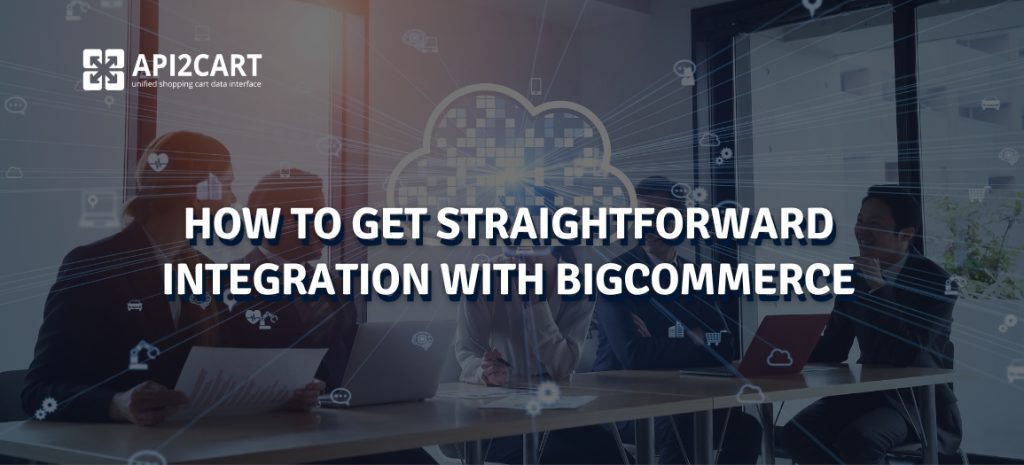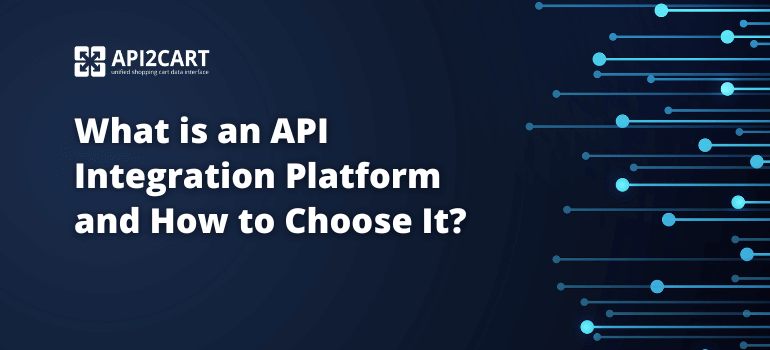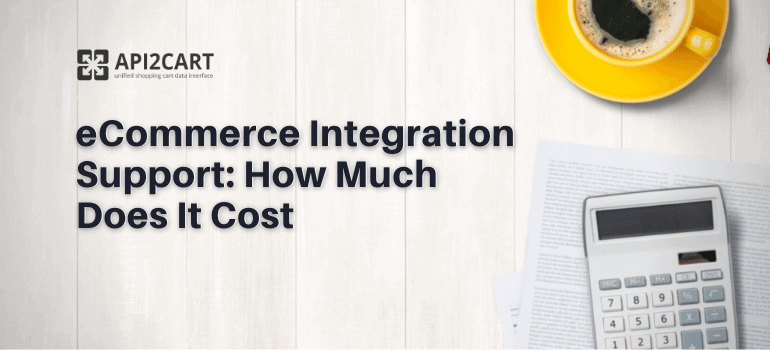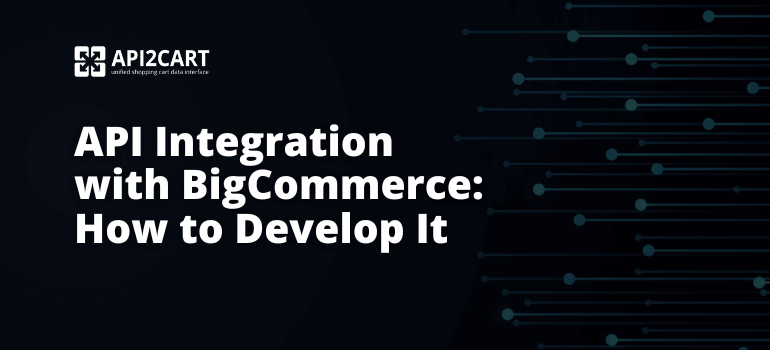
BigCommerce is one of the most popular and rapidly growing platforms for online merchants. Its quarter-over-quarter growth continues to climb, with 1.9% growth recorded in Q1 2025 alone. This steady expansion highlights the increasing importance for eCommerce software vendors to implement BigCommerce API integration to stay competitive and provide valuable services to merchants.
Powering over 60,000 online stores globally. In fact, the platform has seen consistent growth with active stores built on BigCommerce growing by more than 20% year-over-year. This steady expansion underscores the increasing importance for eCommerce software vendors to implement BigCommerce API integration to stay competitive and provide valuable services to merchants.
In this article, we’ll explore why integrating with BigCommerce is essential for eCommerce software vendors. We will also outline the key methods for seamless integration and provide practical tips on how to leverage BigCommerce API integration to enhance your solutions and deliver greater value to merchants.
What is BigCommerce?
BigCommerce enables businesses to create and modify eCommerce websites. Also, the platform offers numerous features such as customizable website designs, product tagging, payment processing, and shipment management. It also includes a user-friendly drag-and-drop editor, allowing businesses to design their stores creatively without needing advanced technical knowledge.

BigCommerce powers more than 44,000 online stores worldwide. It is particularly popular in the United States (33,500 stores), Australia (2,900 stores), the United Kingdom (2,800 stores), Canada (1,300 stores), and Brazil (1,000 stores).
Overview of the BigCommerce API
BigCommerce provides a comprehensive API that developers can use to integrate software solutions with the platform. This eCommerce platform provides an array of components known as BigCommerce API, which developers utilize in integrating their software. Here are the key aspects of the BigCommerce API:
- Built on REST principles, using HTTP verbs such as GET, POST, PUT, and DELETE to handle resources like categories, products, and orders.
- Uses OAuth for authorization to authenticate applications and ensure secure access.
- API responses are primarily in JSON format, a compact and readable data exchange format.
- Developers can create custom applications based on BigCommerce, enhancing functionality for stores.
- BigCommerce also offers GraphQL API for flexibility in retrieving only the necessary data.
The Benefits of BigCommerce API Integration
Integrating with the BigCommerce's API offers numerous benefits for eCommerce software developers. Here are some of the key advantages:
- Enhances software capabilities by adding more functionality.
- Ensures smooth user experience by automating data transfer between eCommerce software and BigCommerce.
- Expands the marketplace by allowing eCommerce solutions to be listed on the BigCommerce App Marketplace.
- Facilitates real-time data transfers, enhancing business operations.
- Improves competitiveness by offering solutions with advanced features compared to non-integrated platforms.
- Keeps solutions aligned with BigCommerce’s development and new features.
Challenges with BigCommerce API Integration
Building a solid API integration with BigCommerce can be complicated for most software business owners. Here are some of the challenges you may face:
- To integrate with a single platform, you must spend at least a month learning the process and several days investigating it.
- Integration development is complex. You need experienced developers who can ensure success. These developers can charge anywhere from $3,000 to over $10,000 per month for various integrations, plus maintenance.
- Ongoing investment in skilled developers is required to handle bugs and maintain the connection.
In summary, the stability of the BigCommerce connection is crucial to accessing data such as orders, shipments, prices, taxes, and customers.
Simplifying BigCommerce API Integration with API2Cart
API2Cart is a universal API that simplifies integration with BigCommerce and other eCommerce platforms. It helps developers save time and resources by providing a unified API, eliminating the need for individual platform integrations.
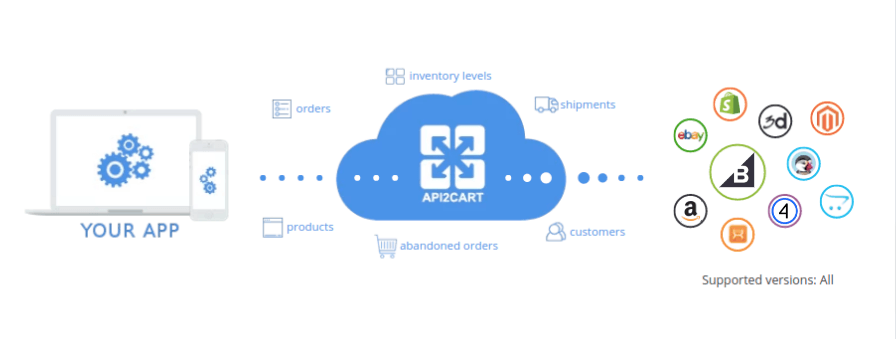
With API2Cart, eCommerce software vendors can access data from multiple BigCommerce stores at once. This is particularly useful for vendors working with BigCommerce merchants who manage multiple online stores.
API2Cart provides easy access to product, customer, order, and inventory data from BigCommerce, making integration straightforward and efficient.
API2Cart supports webhooks to notify software solutions about significant changes on BigCommerce, such as new orders. This allows for automated updates in real time.
Handling Unique BigCommerce API Use Cases with API2Cart
API2Cart offers over 100 API methods to retrieve, add, update and sync store data like customers, orders, products, shipments, categories, and more. In addition to the standard methods supported for BigCommerce API integration, we are constantly working on adding unique methods that allow your eCommerce software to implement a wide range of functions beneficial to developers.
Here’s a brief overview of some unique methods:
- cart.giftcard.add/list/delete.method
The cart.giftcard.add.method allows developers to create gift cards for a specified amount, while customer.group.add.method retrieves all gift cards, and cart.giftcard.delete.method allows for the removal of gift cards from the store.
This functionality is especially useful for eCommerce software that offers promotional features like holiday or birthday gifts. Store owners can use these methods to manage gift card offerings, increase customer retention, and drive sales during promotional events or special sales.
- customer.wishlist.list.method
The customer.wishlist.list.method retrieves all items on a customer's wishlist.
So, this method is valuable for eCommerce software focused on providing personalized shopping experiences or allowing store owners to track customer interests. It enables store owners to send targeted offers or promotions based on what customers have shown interest in, enhancing marketing campaigns and increasing conversion rates.
- customer.group.add.method/list
The customer.group.add.method allows store owners to create new customer groups, while customer.group.list.method retrieves all customer groups.
Generally, this functionality is beneficial for eCommerce software that needs to segment customers for targeted promotions, pricing models, or loyalty programs. It helps store owners personalize marketing efforts, optimize customer segmentation, and improve customer engagement, which ultimately boosts conversions and sales.
- order.transaction.list.method
The order.transaction.list.method retrieves a list of all transactions associated with an order.
Thus, this feature is crucial for eCommerce solutions focused on payment processing, invoicing, or accounting. By utilizing this method, software providers can track payment history, reconcile transactions, and ensure accurate financial reporting, making it an essential tool for managing finances in eCommerce platforms.
API2Cart offers extensive API Docs and support resources, which include guides and examples. So, to test all the features of API2Cart, you should try free trial call with our managers.
FAQs
Using a unified API integration solution, such as API2Cart, that can make this process easier by providing a single integration for 60+ eCommerce platforms and marketplaces, including Magento, Shopify, WooCommerce, Etsy, Wix, Shopee, OpenCart, TikTok Shop, and others, at once.
